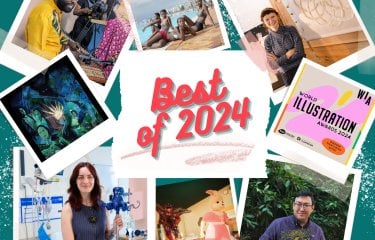How can festivals help build a better future?
31 January 2024

Ahead of contributing to panels at the UK Science Festivals Network Conference and Green Event Innovations 16 (GEI16), Falmouth University’s Head of Business & Experience Design, Adrian Bossey, shares some key thoughts about how festivals can help build a better future.
The UK events industry has been regularly criticised for lacking diversity, whilst facing the climate emergency and being disrupted by technological innovations. Festivals and live events must break down accessibility barriers, harness new technologies, adopt sustainable solutions and invest in talent that’s equipped to transform the events industry for the better.
Making events more accessible
UK Government statistics for 2021/22 identified 16 million people in the UK who were deaf, disabled or neurodivergent. Despite a legal requirement not to discriminate on the grounds of disability, live music performances are often challenging to access for these potential audience members. Physical and systemic solutions exist to mitigate against these barriers and technology can also be deployed to augment the way in which diverse audience members experience live music.
My current research considers the use of haptic technologies which generate vibrations to stimulate our sense of touch so audiences actually ‘feel’ the music. In 2023 the Live Audience Accessibility & Augmentation project installed the Beat Blocks haptic dance floor at Falmouth University to facilitate a series of enhanced music performances and workshops. I also worked with Deaf Rave to evaluate user perceptions of their live experience when wearing Woojer Haptic Vests at music festivals, two field tests took place at Boomtown Fair and the Deaf Rave Festival, supported by academics from the University of Brighton and students from Falmouth University.
Through this work, I’ve witnessed broad support – both from people who self-identify as being deaf, disabled or neurodiverse and those who did not – for the use of haptic technology to improve aspects of the live music festival experience.
Opting for sustainable solutions
Many music festival organisers are working to reduce environmental impacts by addressing on-site factors such as waste management and ethical procurement. However, reducing local on-site environmental impacts only mitigates selected effects of music festivals and is just the beginning for most events. With this in mind, my forthcoming viewpoint article (soon to be published in the revised edition of The Routledge Handbook of Events and Sustainability) argues that increasing audiences for acceptably ‘live’ monetarised ICT enhanced content, could facilitate a reduction in on-site audience capacities at larger music festivals. This in turn would significantly reduce the environmental impact of the festivals concerned by minimising audience travel (which generates the largest environmental impact).
Investing in future-ready talent
Universities can play an important role in broadening inclusion and increasing sustainability within the music festival industry by upskilling future and existing workers. For example, at Falmouth we have developed two short online Continuing Professional Development courses in partnership with A Greener Future and Attitude is Everything. They are delivered simultaneously to university students and global live music industry practitioners, upskilling them around increasing accessibility for people who are deaf or disabled and the environmental considerations for live events.
Advocating for positive change
It is important to advocate for positive change through national and international debate with industry. Therefore, I will be contributing to the accessibility panel at the UK Science Festivals Network Conference, on 30 January 2024 in Birmingham. The theme for the conference is ‘How can festivals help build a better future’. The UK Science Festivals Network is managed by the British Science Association, a charity that aims to affirm science as a part of British culture. Additionally, I will be chairing an academic panel at Green Event Innovations 16 (GEI16) with A Greener Future. The panel will be on ‘Supporting sustainable employability skills for current and future generations of festival and event managers’. GEI16 is at the Royal Lancaster Hotel, London on 27 February 2024 and is delivered in partnership with the International Live Music Conference.




